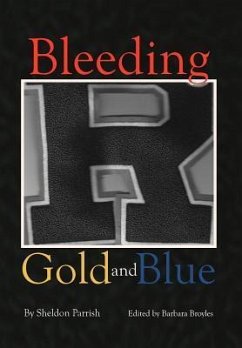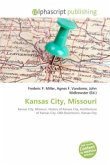Bleeding Kansas, Bloody Kansas or the Border War, was a series of violent events, involving anti-slavery Free-Staters and pro-slavery "Border Ruffian" elements, that took place in the Kansas Territory and the western frontier towns of the U.S. state of Missouri roughly between 1854 and 1858. At the heart of the conflict was the question of whether Kansas would enter the Union as a free state or slave state. As such, Bleeding Kansas was a proxy war between Northerners and Southerners over the issue of slavery in the United States. The term "Bleeding Kansas" was coined by Horace Greeley of the New York Tribune; the events it encompasses directly presaged the American Civil War. The United States had long struggled to balance the interests of slaveholders and abolitionists. The events later known as Bleeding Kansas were set into motion by the Kansas-Nebraska Act of 1854, which nullified the Missouri Compromise and used the concept of popular sovereignty.








